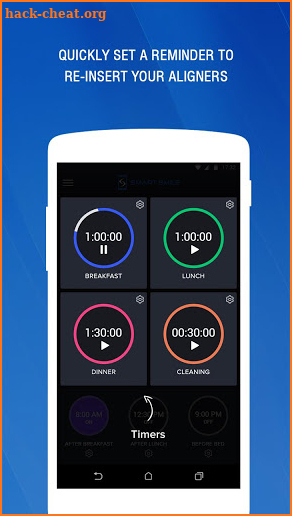

This conduct deserves a more significant sanction." "Her cybercrimes created anxiety for millions of people who are justifiably concerned about their private information. Thompson’s hacking and theft of information of 100 million people did more than $250 million in damage to companies and individuals," Brown said.

#One apphack software
Thompson’s attorneys argued at trial that she struggled with mental health issues, never intended to profit from the data she obtained, and said in court papers "there is no credible or direct evidence that a single person’s identity was misused."įederal prosecutors said she didn’t just steal the data, but also planted software on servers she unlawfully accessed to steal computing power to mine cryptocurrency. The Treasury Department fined the company $80 million for failing to protect the data. RELATED: Former Seattle tech worker convicted of wire fraud for massive Capital One breach Thompson, 37, obtained the personal information of over 100 million people - a data breach that prompted Capital One to reach a $190 million settlement with affected customers. The jury acquitted her of other charges, including access device fraud and aggravated identity theft. In June, a Seattle jury found her guilty of wire fraud, unauthorized access to a protected computer and damaging a protected computer. To date, Voatz has paid out $950 for six reported flaws, according to HackerOne."This is not what justice looks like," Brown said in the statement. Other than an eight-page white paper published earlier this year, Voatz has been reluctant to have its platform more closely examined, though it does participate in the cybersecurity firm HackerOne‘s bug bounty program, which offers cash payments to people who identify programming flaws. A paper last year from the National Academies of Sciences, Engineering, and Medicine suggested a moratorium on all forms of internet-based voting. Voatz has come under widespread scrutiny from the cybersecurity community, especially for encrypting the votes it collects using blockchain technology. “The attempt was detected, thwarted at the gate and reported to the authorities.” “The Voatz system worked as designed and intended,” Voatz chief executive Nimit Sawhney told StateScoop last week. According to state officials and the app’s developers, Voatz is designed only to grant ballot access to qualified voters who go through multiple layers of biometric identification, including facial-recognition and fingerprint scanning.īut according to CNN, Warner’s office detected activity from IP addresses associated with the University of Michigan, prompting an investigation.
#One apphack mac
attorney for West Virginia, revealed the investigation last Tuesday, saying that during the 2018 election cycle his office was alerted by West Virginia Secretary of State Mac Warner that there was an “attempted intrusion by an outside party” to access the Voatz app. Federal investigators looking into an alleged hacking attempt against the mobile app that West Virginia officials used to collect ballots from overseas voters in the 2018 election are determining if the incident was the result of computer-science students at the University of Michigan testing for vulnerabilities.ĬNN reported Friday that the FBI is investigating “a person or people” who attempted to access the app - Voatz - as part of a cybersecurity course at University of Michigan, which is one of a handful of universities with a curriculum focused on election security.


 0 kommentar(er)
0 kommentar(er)
